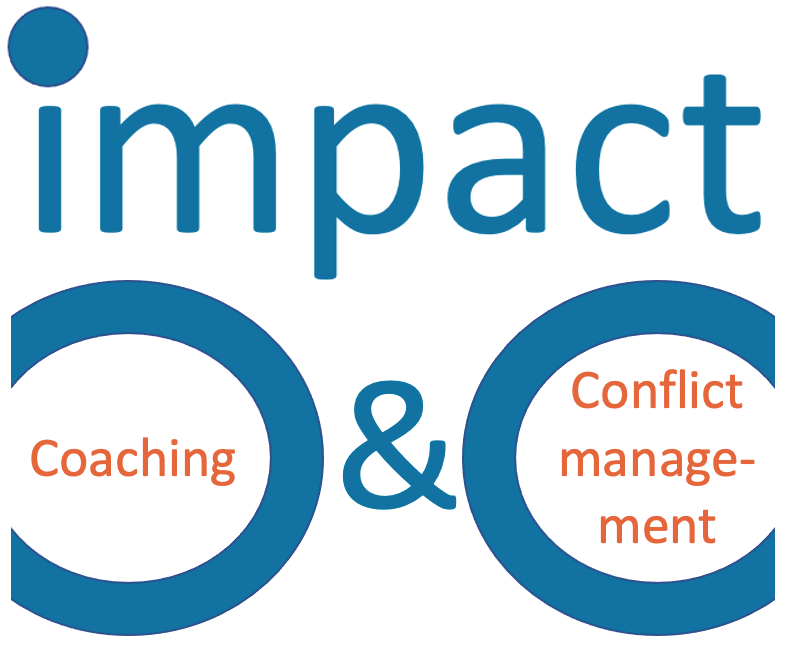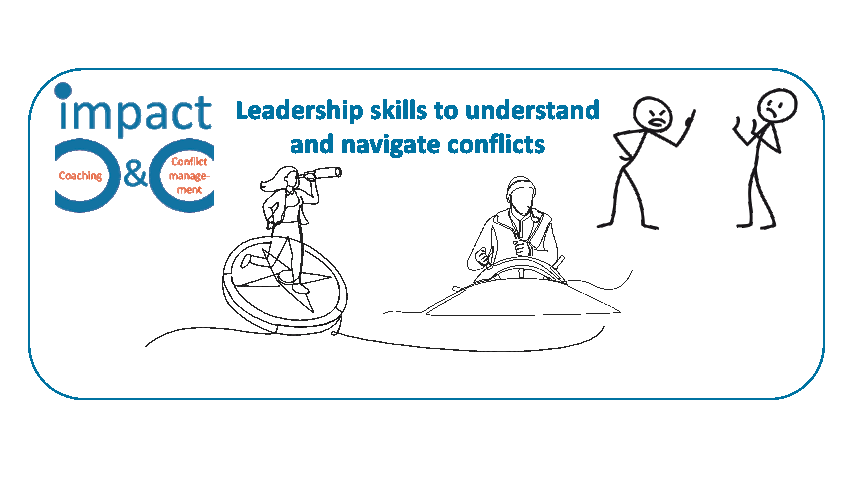Leadership conflict competencies have been widely discussed in the last years. If you google “leadership conflict management skills” you receive 86’800’000 results. One can choose between “The 6 most important, …. 10 tips for leaders, ……” Sometimes it’s 8 skills, sometimes 18. Each of these trying to describe the most important competencies leaders need to have.
Lists of conflict competencies have the tendency to be based on a random choice, so they are somewhat arbitrary. So, instead of giving you another – and probably even longer – list of leadership conflict resolution competencies, let’s categorize. Grouping the competencies into categories can be a way to see a little clearer why one or the other conflict skill is useful and for what purpose. Also, it provides a baseline for your self-assessment.
📌Personal conflict competency: the personal resources you have at your disposal in conflictual situations. Like for instance: the ability to perceive conflict phenomena in yourself and in your leadership/ work environment, the ability to express your own concerns and to accept differing perspectives and points of view.
📌Social conflict competencies: the capability to create, shape and maintain social interactions in the face of conflicts. Like for instance: the ability to address tensions and the willingness to actively overcome them, to empower your employees/ team members/ peers to express their concerns, the capability to engage in dialogues (as opposed to monologues or non-communication).
📌Systemic intelligence: the capability to comprehend the specific dynamics of the company, its conflict potential(s) as well as the interplay of the organization (its structure, roles and culture) with its people. Like for instance: being able to identify the relevant stakeholders for conflict solutions, to understand the breadth or depth of emerging conflict issues and to understand the forces at work.
📌Conflict expertise: knowledge on how conflicts typically work. Like for example: which inner dynamics they unfold in people and which social dynamics they set in motion, which behaviours of involved parties intensify and escalate a conflict.
📌Methodological competency: knowing and being able to apply methods, rule, principles that are useful and effective to initiate, organize and guide processes of conflict settlement. Like for instance: ways to de-escalate a situation, or different strategies which contribute to clarify situations and points of view.
📌Competency to act as a leader in a conflictual situation: the ability to analyze, reflect and decide what needs to be done and to take the appropriate action. Like for instance: the ability to structure conflict resolution procedures adapted to the situation, the constellation as well as the people involved.
You may feel stronger in some of these categories than in others, however all of these are important to navigate through conflicts successfully. No reason to worry – the good news is that all of these competencies can be acquired – by training anyone can get better at handling conflicts constructively.

